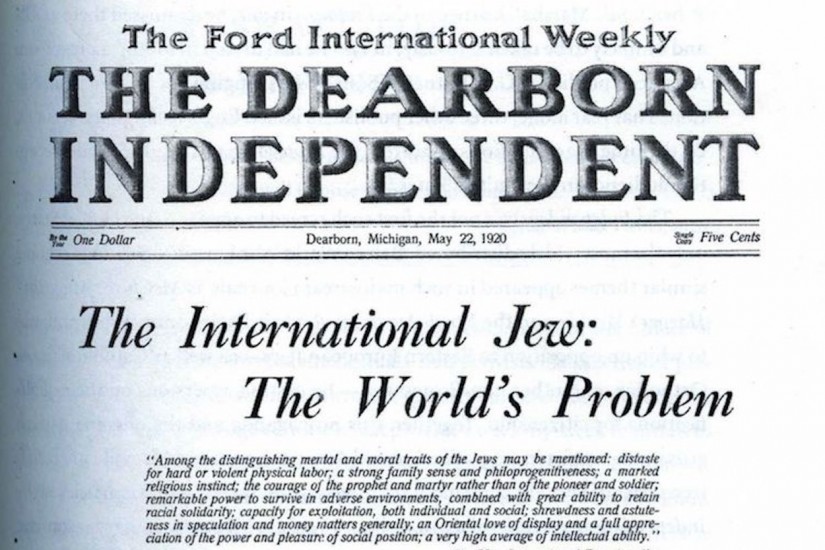Henry Ford was peaking as a global celebrity at the conclusion of World War I, having introduced the $5 workday, assembly line and Model T -- revolutionary changes that transformed the way people lived. Reporters staked out the gates of his Fair Lane mansion. Ford loved the limelight and he constantly made news, even running for the U.S. Senate in Michigan as a Democrat in 1918. He narrowly lost.
In the midst of his fame, Ford became a media mogul of sorts, forming the Dearborn Publishing Company and purchasing the sleepy Dearborn Independent weekly newspaper, which was dying of red ink. He published the paper under his name for the first time 100 years ago, in January 1919.
Under Ford, the Independent became notorious for its unprecedented attacks on Jews. But Ford’s anti-Semitism traveled far beyond the Dearborn borders. Showing the marketing expertise that had catapulted Ford Motor into one of the world’s most famous brands, Henry Ford’s lieutenants vastly widened the reach of his attacks by packaging the paper’s anti-Semitic content into four books. Experts say “The International Jew,” distributed across Europe and North America during the rise of fascism in the 1920s and ‘30s, influenced some of the future rulers of Nazi Germany.
In 1931, two years before he became the German chancellor, Adolf Hitler gave an interview to a Detroit News reporter in his Munich office, which featured a large portrait of Ford over the desk of the future führer. The reporter asked about the photo.
“I regard Henry Ford as my inspiration,” Hitler told the News.
Ford’s anti-Jewish campaign provoked protests and a boycott of Ford Motor automobiles in the 1920s. Ford offered an apology -- received by the public with great skepticism -- and closed the paper in 1927. It was too late, though, as copies of “The International Jew” spread widely before and after World War II, influencing generations of anti-Semites. The glowing imprimatur of Henry Ford lent credibility to the preposterous charges against Jews the books contained.
But what might have been lost to history as an ugly curiosity has proven to be a Pandora’s box, as the Internet age has given Ford’s anti-Semitic literature a powerful new life. Today, a century after Ford purchased the Dearborn Independent and 72 years after his death, his legacy of hate is stronger than ever -- it flourishes on the websites and forums of white nationalists, racists and others who hate Jews.
